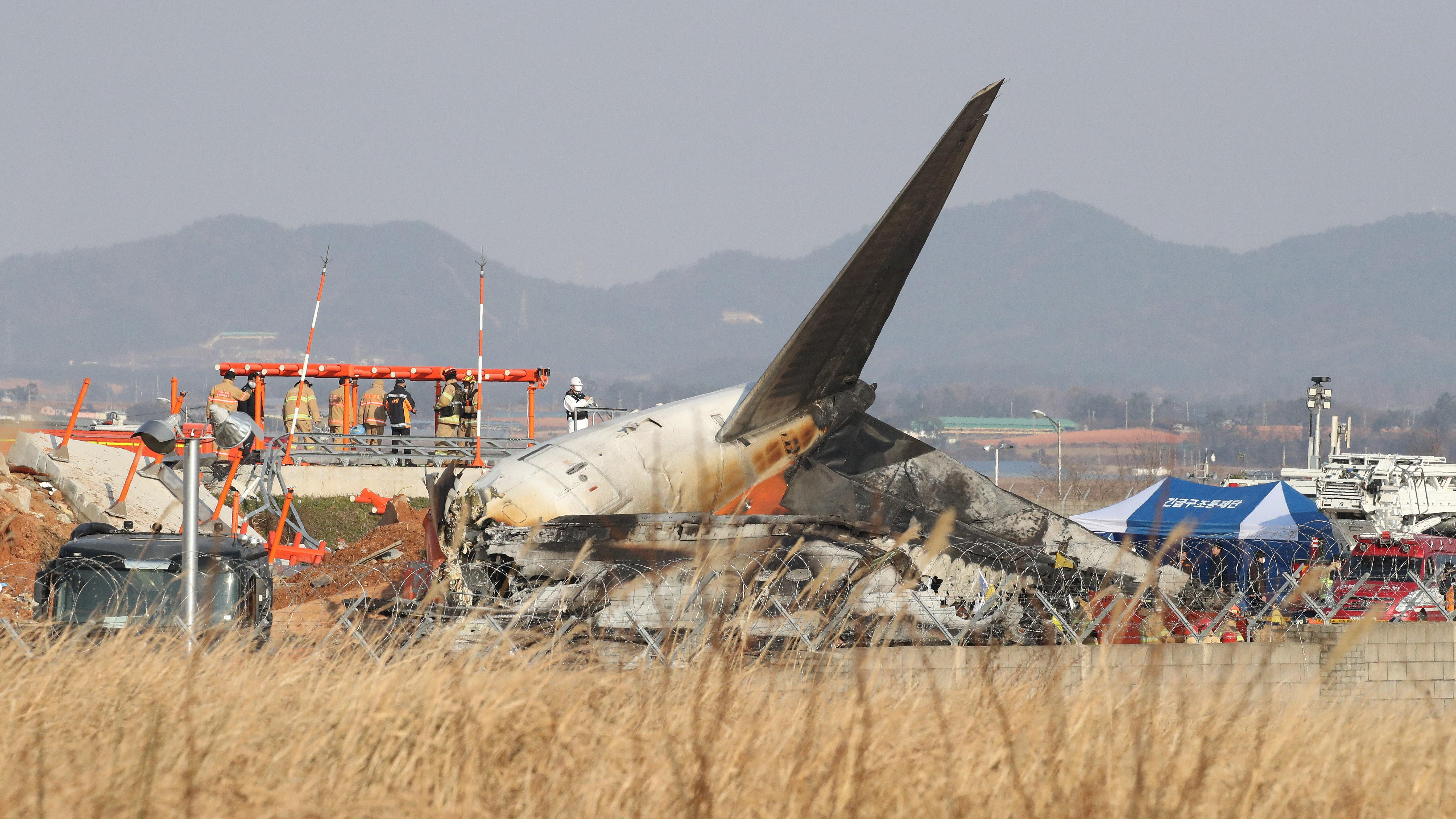South Korea's Deadly Plane Crash Has Created More Questions Than Answers
Former South Korean airport president was found dead on Tuesday after an apparent suicide
The crash of Jeju Air Flight 7C2216 killed 179 people on December 29 when the aircraft slid down the runway at the Muan International Airport and slammed into a concrete embankment. There were only two survivors, the flight attendants seated in the rear galley. The ongoing investigation has raised even more questions about why the crash landing happened, and the tragic events have rattled South Korean society to its core.
The embankment, intended to shield the antenna array at the end of the runway, has been under scrutiny since the crash. The South Korean Transport Ministry announced on Wednesday that the concrete feature would be removed from Muan International Airport, according to Reuters. Most other international airports simply mount similar arrays on breakaway posts to allow planes to overrun the pavement across flat ground. If this change was in place, it's likely that no one would have died during the late December crash.
The government announcement came after the airport's former president was found dead on Tuesday in his home after an apparent suicide. Son Chang-wan led the Korea Airports Corporation, the state-owned entity that operates Muan International, Seoul–Gimpo International and 12 other airports across South Korea. Son held the post when Muan underwent renovations in 2020. Son wasn't a subject of the crash investigation, according to the New York Times.
Investigators are still piecing together exactly how Jeju Air Flight 7C2216 slid down the runway. The task is made more difficult because the black box failed to record the flight's last four minutes, the BBC reports. The scope of the inquiry is now expanding to find out why Boeing 737's flight data and cockpit voice recorders lost power. Without the data, the investigators note that the plane suffered a double bird strike after finding bird feathers and blood inside both engines. Only time will tell what else is uncovered.
